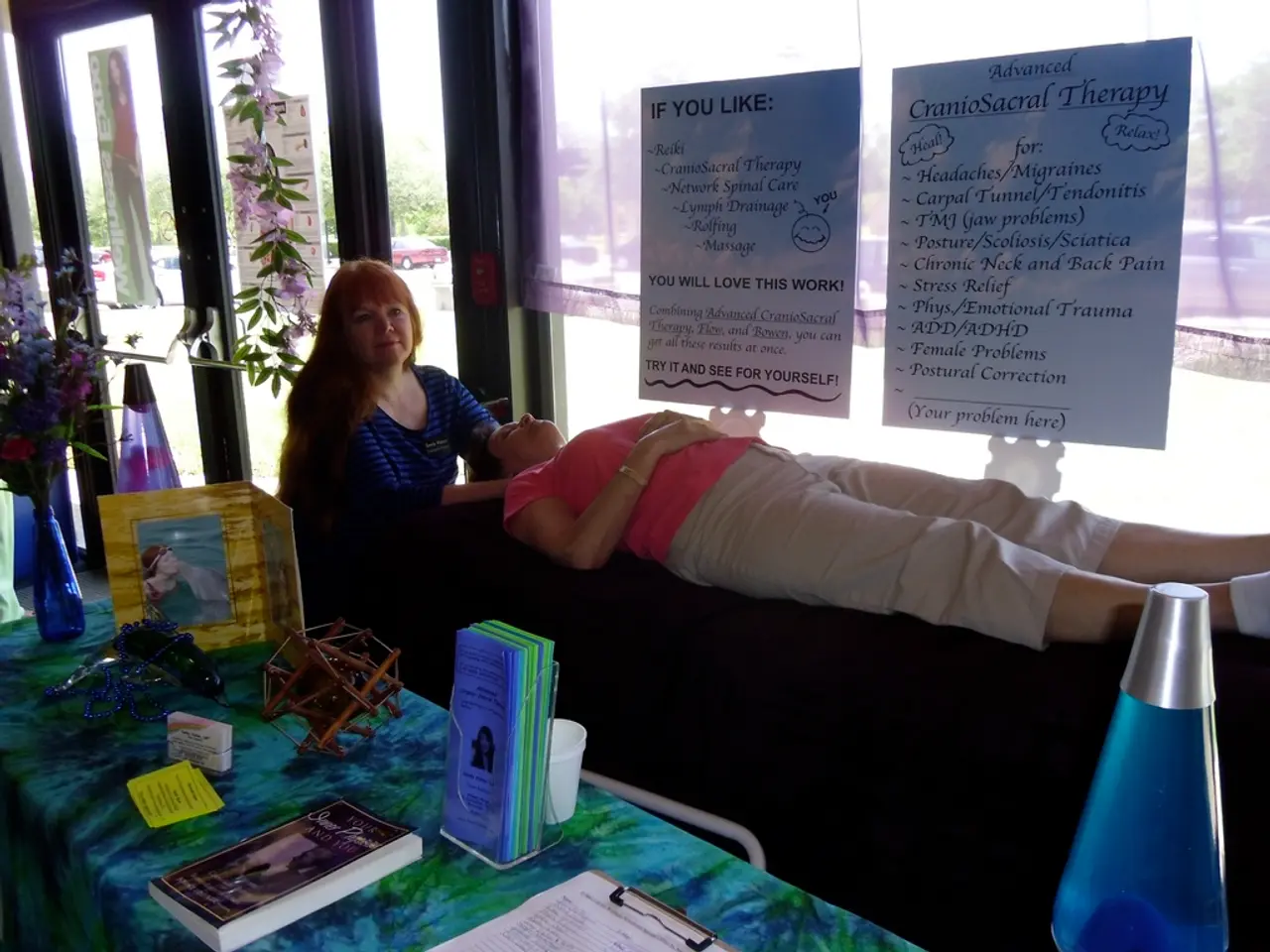Experiencing Early-Morning Anxiety: Identifying Triggers and Soothing Strategies
### Coping with Morning Anxiety: A Guide on Managing Stress-Related Waking Anxiety
Morning anxiety can be a distressing experience, often stemming from the body's and mind's ongoing response to stressful or traumatic life events. Understanding the root causes and adopting effective coping mechanisms can help alleviate this issue and ensure a calmer start to the day.
#### Trauma and Persistent Anxiety
Traumatic or highly stressful events can leave a lasting impact, causing the body to remain in a state of hyperarousal. This heightened state of alertness or fear can disrupt sleep and lead to waking anxiety. The mind may continue to feel unsafe even after the event has passed, leading to feelings of dread or panic upon waking [1].
#### Brain-Body Connection
Anxiety is the body's natural response to perceived threats or uncertainty. Stressful life events activate the fight-or-flight stress response, increasing heart rate, muscle tension, and breathing rate. These symptoms can carry into sleep or cause restless or fragmented sleep, resulting in waking up anxious or with a racing heart [2][5].
#### Cognitive Factors
Stress can lead to catastrophizing, where individuals overestimate threats and worry excessively about their coping abilities. This mental rumination can continue overnight, causing anxiety to surface upon waking [2].
#### Chronic Stressors
Repeated or ongoing stressful life events such as marital problems, work dissatisfaction, illness, or death of a loved one can create chronic stress. This chronic activation of the stress response often leads to insomnia or poor sleep quality, which further exacerbates morning anxiety [5].
#### Childhood Trauma and Expectations
Past traumatic experiences, particularly in childhood, can shape an individual's stress and anxiety response. Research indicates that such traumatic histories can influence how recent stressful events are perceived, sometimes increasing anxious feelings and pessimistic outlooks upon waking [3].
#### Coping Mechanisms to Manage Morning Anxiety Due to Stress
- **Establish a Relaxing Sleep Routine:** Creating a calming bedtime routine helps the body transition into rest mode and reduces nighttime stress arousal. Techniques include deep breathing, meditation, limiting screen time before bed, and gentle stretching [5].
- **Cognitive Behavioral Therapy (CBT):** CBT methods address dysfunctional thought patterns like catastrophizing and help develop positive coping skills, reducing anxiety’s grip and making mornings more manageable [2][1].
- **Mindfulness and Grounding Techniques Upon Waking:** Practicing mindfulness meditation or grounding exercises immediately after waking can redirect focus from anxious thoughts to the present moment, reducing feelings of panic and tension.
- **Physical Exercise:** Regular moderate exercise lowers overall stress levels and improves sleep quality, which helps mitigate morning anxiety symptoms [2].
- **Professional Support:** For those with trauma-related anxiety or chronic waking anxiety, seeking mental health support such as trauma-informed therapy or anxiety disorder treatment is important for long-term healing and symptom management [1][3].
- **Sleep Hygiene and Stress Management:** Improving sleep hygiene—consistent sleep schedule, comfortable environment—and managing daily stress through time management, social support, and relaxation techniques can reduce chronic stress and its impact on waking anxiety [5].
- **Herbal Remedies and Supplements:** Herbal remedies or supplements such as chamomile or valerian may also be used to help manage anxiety, but a person should speak with a doctor before trying these [6].
In summary, waking up with anxiety often reflects the body and mind’s ongoing response to stressful or traumatic life events, manifesting as physiological arousal and anxious cognitive patterns. Combining behavioral changes, therapeutic intervention, and mindfulness can be effective in breaking this cycle and restoring a calmer start to the day.
For those experiencing persistent or severe anxiety, it is essential to seek professional help, such as counseling, support groups, or other forms of therapy, to help reduce anxiety and manage stress effectively.
- Trauma-related anxiety might be due to type of ulcerative colitis or other chronic health issues like diabetes, asthma, or COPD, as persistent stressors can exacerbate these conditions and disrupt sleep, leading to morning anxiety.
- Scientific research suggests that childhood trauma and certain mental health conditions, such as anxiety disorders, can have a predictive relationship with sleep health-and-wellness problems and poor mental-health outcomes in adulthood.
- Incorporating health-and-wellness practices like eating a balanced diet, regular exercise, stress management, and sufficient sleep can help manage chronic conditions like ulcerative colitis or type 2 diabetes, potentially reducing the risk of anxiety and improving overall well-being.
- Practicing mindfulness and grounding techniques during an unexpected flare-up or attack of ulcerative colitis can help redirect focus and minimize anxiety while managing symptoms effectively.
- Certain herbal remedies like chamomile, valerian, and other supplements can play a supportive role in stress management for individuals with conditions like diabetes or inflammatory bowel disease, aiding in sleep and anxiety relief.
- For those with anxiety disorders related to prior trauma or chronic waking anxiety, lifestyle modifications like cognitive behavioral therapy (CBT), physical exercise, and mental health assessments can help create a more restful and calmer sleeping environment, ultimately leading to a more relaxed morning.
- It is crucial for people with anxiety or sleep problems to consistently prioritize self-care, including mental-health maintenance, proper stress management, and adherence to their prescriptions or recommended treatments to facilitate overall health and well-being.




